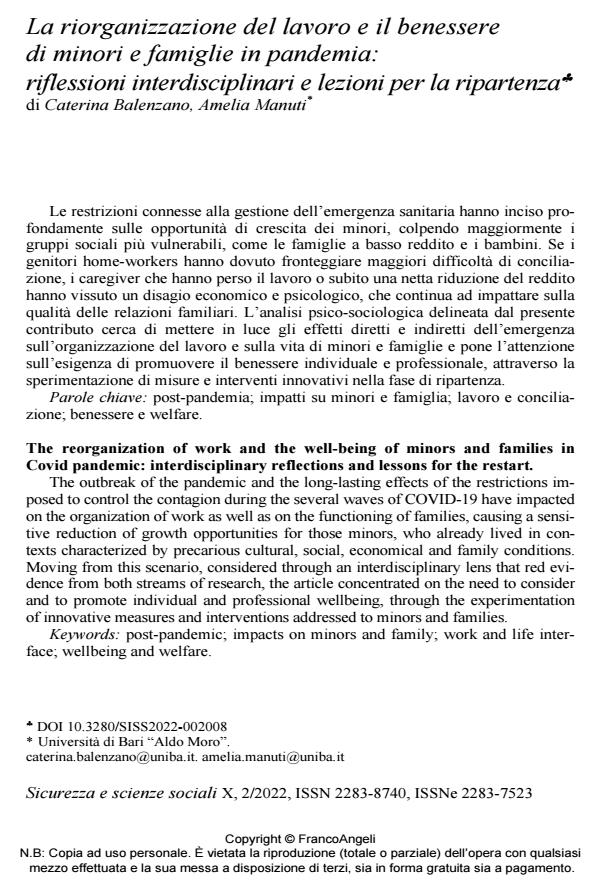The reorganization of work and the well-being of minors and families in Covid pandemic: interdisciplinary reflections and lessons for the restart.
Journal title SICUREZZA E SCIENZE SOCIALI
Author/s Caterina Balenzano, Amelia Manuti
Publishing Year 2022 Issue 2022/2
Language Italian Pages 17 P. 107-123 File size 215 KB
DOI 10.3280/SISS2022-002008
DOI is like a bar code for intellectual property: to have more infomation
click here
Below, you can see the article first page
If you want to buy this article in PDF format, you can do it, following the instructions to buy download credits

FrancoAngeli is member of Publishers International Linking Association, Inc (PILA), a not-for-profit association which run the CrossRef service enabling links to and from online scholarly content.
The outbreak of the pandemic and the long-lasting effects of the restrictions imposed to control the contagion during the several waves of COVID-19 have im-pacted on the organization of work as well as on the functioning of families, caus-ing a sensitive reduction of growth opportunities for those minors, who already lived in contexts characterized by precarious cultural, social, economical and family conditions. Moving from this scenario, considered through an interdiscipli-nary lens that red evidence from both streams of research, the article concentrated on the need to consider and to promote individual and professional wellbeing, through the experimentation of innovative measures and interventions addressed to minors and families.
Keywords: post-pandemic; impacts on minors and family; work and life inter-face; wellbeing and welfare.
- From Conflict to Balance: Challenges for Dual-Earner Families Managing Technostress and Work Exhaustion in the Post-Pandemic Scenario Cataldo Giuliano Gemmano, Amelia Manuti, Sabrina Girardi, Caterina Balenzano, in International Journal of Environmental Research and Public Health /2023 pp.5558
DOI: 10.3390/ijerph20085558
Caterina Balenzano, Amelia Manuti, La riorganizzazione del lavoro e il benessere di minori e famiglie in pandemia: riflessioni interdisciplinari e lezioni per la ripartenza in "SICUREZZA E SCIENZE SOCIALI" 2/2022, pp 107-123, DOI: 10.3280/SISS2022-002008